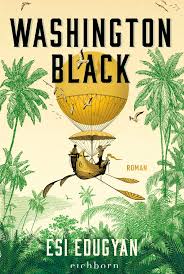The Significance of Washington Black in Contemporary Literature

Introduction
Washington Black is a novel by Esi Edugyan that has garnered significant attention since its publication in 2018. The story follows the life of George Washington Black, an escaped slave from a plantation in Barbados, who becomes an explorer in the 19th century. This novel is not only a riveting tale of adventure but also serves as a poignant commentary on issues of race, identity, and freedom that resonate deeply in today’s society. As cultural conversations around these themes continue, Washington Black remains a crucial text for understanding the historical and contemporary struggles against oppression.
Plot Overview
The book chronicles the extraordinary life of Washington Black, or ‘Wash,’ who navigates a world rife with systemic racism and social inequality. His journey begins when he is unexpectedly chosen to be the servant of the eccentric inventor Titch. As events unfold, Wash escapes slavery and embarks on a globe-trotting adventure that takes him from the Caribbean to the Arctic. This riveting narrative not only highlights Wash’s quest for identity and independence but also uncovers the complexities of freedom in a world still governed by colonial powers.
Thematic Relevance
Washington Black masterfully intertwines themes of personal freedom and societal constraints. It examines the historical context of slavery while elevating the discourse on racial identity and belonging. Wash’s character evolves throughout the story, embodying the struggle to reconcile personal ambitions with the harsh realities faced by people of colour in a prejudiced world. The novel encourages readers to reflect on the lasting impact of slavery and the ongoing fight for equality, making it a significant piece in understanding contemporary racial dynamics.
Critical Reception and Cultural Impact
Since its release, Washington Black has received widespread acclaim, being shortlisted for the Booker Prize and winning the Giller Prize. Critics have praised Edugyan’s vivid storytelling and deep character development, which brings the historical context to life. The novel stimulates vital conversations around colonialism, race, and identity—topics that continue to dominate global discourse. As more readers engage with Washington Black, it has the potential to inspire change in perspectives towards race relations and historical injustices.
Conclusion
In conclusion, Washington Black is not merely a historical narrative; it represents a broader, ongoing dialogue about race and freedom. Esi Edugyan’s impactful storytelling provides a lens through which readers can examine the social constructs of the past and their implications on present-day society. As we continue to grapple with issues of equality and justice, Washington Black serves as a powerful reminder of the enduring quest for liberation and the importance of storytelling in shaping our collective consciousness.









